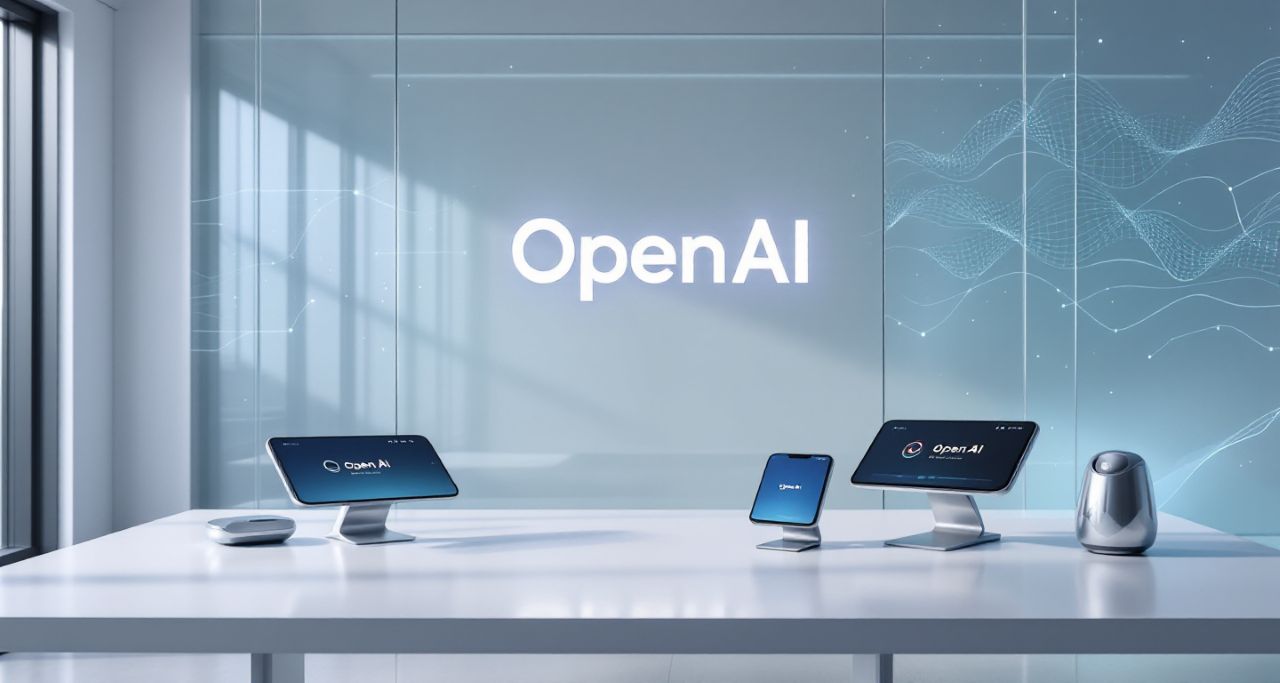A New Chapter for AI Hardware?

OpenAI, the company that brought us ChatGPT and reignited the world’s fascination with artificial intelligence, has just made its boldest move yet: acquiring Jony Ive’s AI device startup, io, for a staggering $6.4 billion.
OpenAI, the company that brought us ChatGPT and reignited the world’s fascination with artificial intelligence, has just made its boldest move yet: acquiring Jony Ive’s AI device startup, io, for a staggering $6.4 billion. If you’re wondering why this matters, let’s put it this way—this is the kind of deal that could change not just what’s in your pocket, but how you interact with technology itself.
The Visionaries: Sam Altman and Jony Ive
Sam Altman, OpenAI’s CEO, has never been shy about his ambitions for artificial general intelligence (AGI). But even the most advanced AI needs a vessel—a way to reach people beyond the glowing rectangles we’ve grown so attached to. Enter Jony Ive, the legendary designer behind the iPhone, iPod, and MacBook, who left Apple in 2019 to found io, a startup with a mission to rethink the very idea of personal devices.
I remember the first time I held an iPhone. It felt like the future had arrived in my hand. That’s the kind of magic Altman and Ive are hoping to conjure again, but this time, with AI at the core.
What Is io, and Why Does OpenAI Want It?
Io is not just another hardware startup. With a team of 55 engineers, designers, and researchers, it’s been quietly working on alternatives to the smartphone—devices that could make interacting with AI as natural as breathing. While details are still under wraps, sources close to the deal say OpenAI and Ive are aiming for “something totally different [to a phone]… a completely new surface” for computing.
The acquisition is an all-equity deal, with OpenAI already holding a 23% stake in io. Ive himself won’t become an OpenAI employee, but he will take on “deep creative and design responsibilities” across both organizations. His design studio, LoveFrom, will remain independent, continuing its work with clients like Ferrari.
The Stakes: Beyond the Smartphone
Why is OpenAI making such a massive bet? The answer lies in the shifting landscape of how we use technology. The smartphone, for all its power, is starting to feel like a relic of a pre-AI era. Companies like Humane have tried—and failed—to launch AI-powered alternatives, but the appetite for something new is growing.
OpenAI’s partnership with Apple, which recently integrated ChatGPT into Siri and other tools, hints at a broader industry shift. Even Apple’s Eddy Cue recently mused that “you may not need an iPhone 10 years from now, as crazy as it sounds.” The implication is clear: the next big leap in personal technology won’t be another phone, but something that makes AI an invisible, intuitive part of daily life.
Lessons from the Past, Eyes on the Future
Jony Ive’s legacy is built on making technology feel personal, even magical. But he’s also been candid about the “unintended consequences” of the iPhone—how it’s changed our attention, our relationships, even our sense of self. In a recent interview, he spoke about wanting to address those issues in his next act.
That’s what makes this acquisition so fascinating. It’s not just about building a new gadget; it’s about reimagining our relationship with technology at a moment when AI is poised to become as ubiquitous as electricity.
What Comes Next?
No one outside the inner circle knows exactly what OpenAI and Ive are cooking up. But if history is any guide, it won’t be incremental. It will be a moonshot—a device, or family of devices, that could make today’s smartphones look as quaint as rotary phones.
As someone who’s watched the tech world chase the next big thing for decades, I can’t help but feel a twinge of excitement. The last time Jony Ive and a visionary CEO teamed up, they changed the world. Now, with AI as their canvas, they just might do it again.
